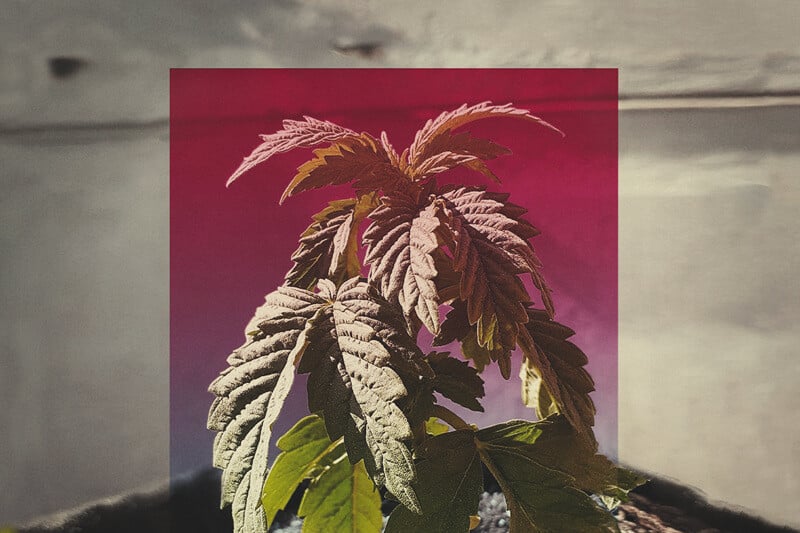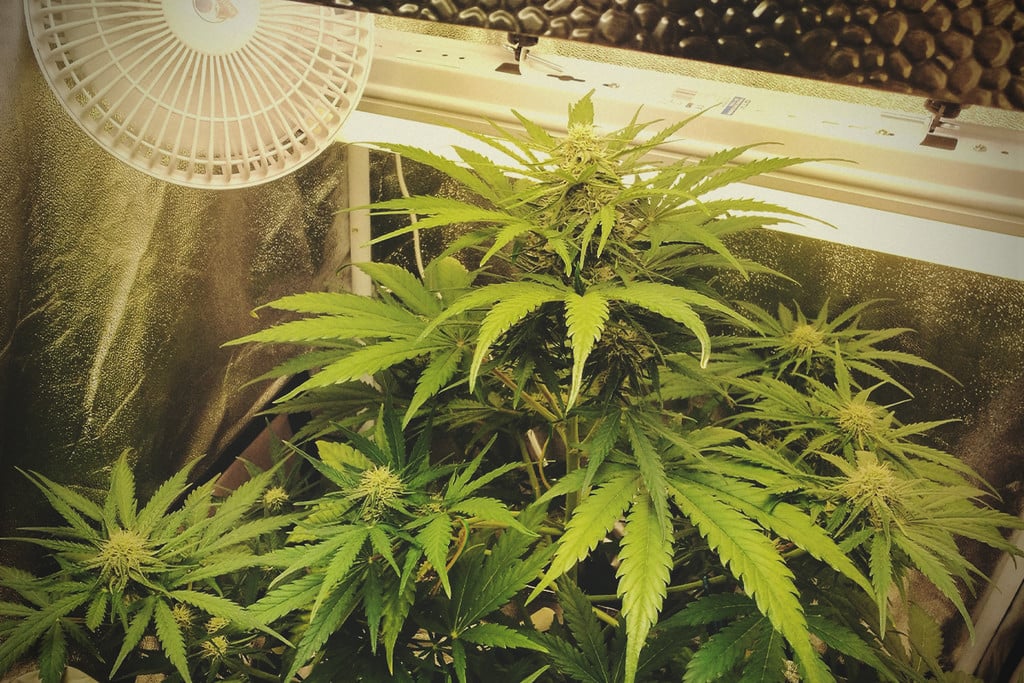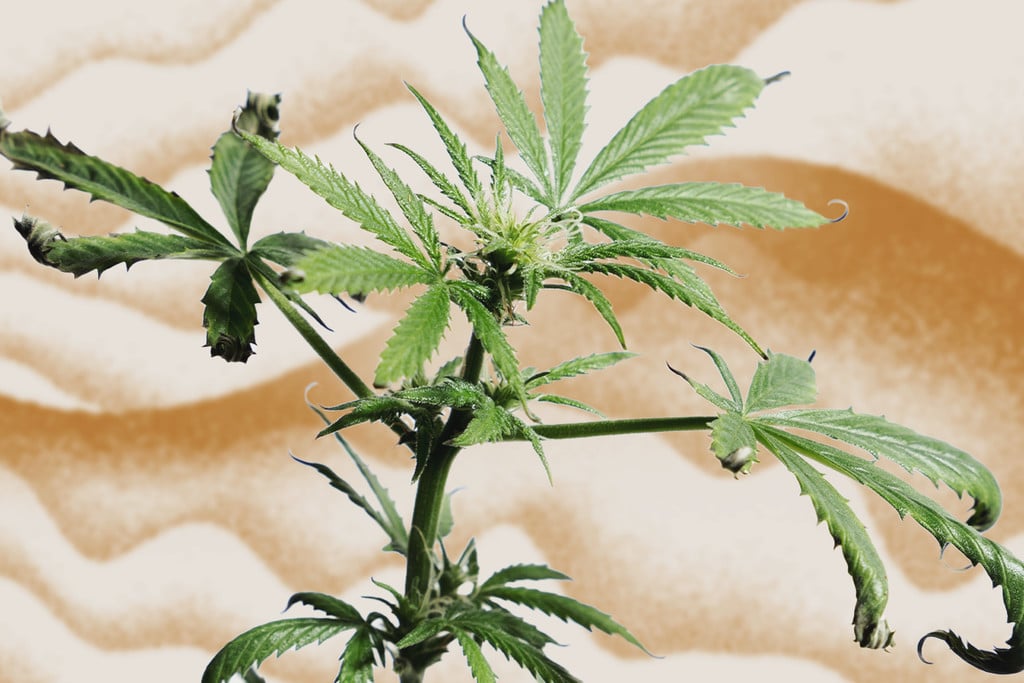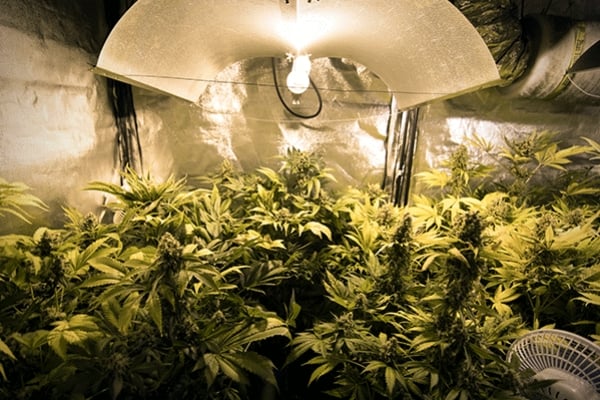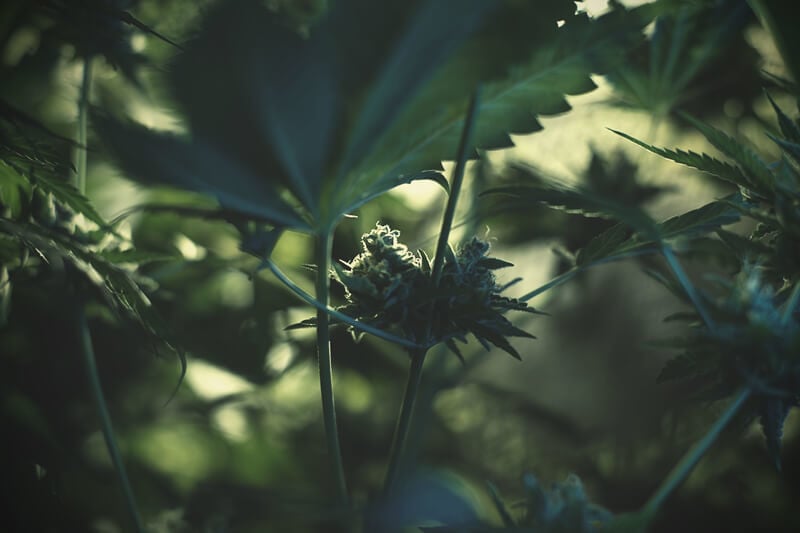 Cannabis Grow Guide by Royal Queen Seeds
Cannabis Grow Guide by Royal Queen Seeds
- Growing cannabis step by step
- Cannabis growing basics
- Choosing your seeds
- How to germinate seeds
- The cannabis vegetative stage
- The cannabis flowering stage
- Harvesting cannabis
- Trimming, drying, and curing
- Choosing pots and soil
-
Growing indoors
- A Complete Overview Of Growing Cannabis Indoors
- Cannabis Cultivation Tips: How To Set Up Indoor Grow Lights
- How Many Cannabis Plants Can You Grow Per Square Metre?
- Indoor Cannabis Growing: Relative Humidity and Temperatures
- Hydroponics Cannabis Growing Guide (with diagrams)
- Cannabis Micro Growing: Growing Great Weed in Tiny Spaces
- Growing outdoors
- How to grow autoflowering cannabis
- Cannabis nutrients and pH
- Cannabis troubleshooting: Nutrients
-
Cannabis troubleshooting: Growing
- Cannabis Seed Germination — Troubleshooting Guide
- How to Deal With Pythium (Root Rot) in Cannabis Plants
- Slow Cannabis Plant Growth And What You Can Do About It
- How to Deal With Leggy Cannabis Seedlings
- Watering Your Cannabis: How to Fix Overwatering and Underwatering
- Understanding Male, Female, And Hermaphrodite Cannabis
- Identifying and Treating Common Cannabis Ailments
- How To Revive a Sick Cannabis Plant
- How to Avoid Mouldy Weed During Drying and Curing
- How to Prevent and Treat Dry and Crispy Cannabis Leaves
- What Cannabis Leaves Can Tell You
- Causes and Solutions for Yellow Cannabis Leaves
-
Cannabis Strains Grow Report
- HulkBerry Automatic Grow Report
- Blue Cheese Auto Grow Report
- Purple Punch Automatic Strain Grow Report
- Triple G Automatic Grow Report
- Do-Si-Dos Automatic Grow Report
- Green Gelato Automatic Grow Report
- Haze Berry Automatic Grow Report
- Purple Queen Automatic Grow Report
- Cookies Gelato Automatic Grow Report
- Sherbet Queen Automatic Grow Report
- Sweet Skunk Automatic Grow Report
- Medusa F1 Grow Report
- Cannabis plant training
-
Weed growing tips
- The Cannabis Plant Anatomy
- How to preserve seeds
- How Much Sunlight Do Outdoor Cannabis Plants Need To Grow?
- How to Control and Prevent Stretching in Cannabis Plants
- My Cannabis Plants Are Growing Too Tall: What Should I Do?
- Should You Worry About Purple Or Red Cannabis Stems?
- What To Do When Your Indoor Cannabis Won’t Flower
- How To Protect Your Cannabis Plants From Heat Stress
- How To Tell If Your Female Cannabis Plant Has Been Pollinated
- Growing Medical Marijuana
- Bud Washing: How to Clean Your Weed
- Understanding Cannabis Yield per Plant
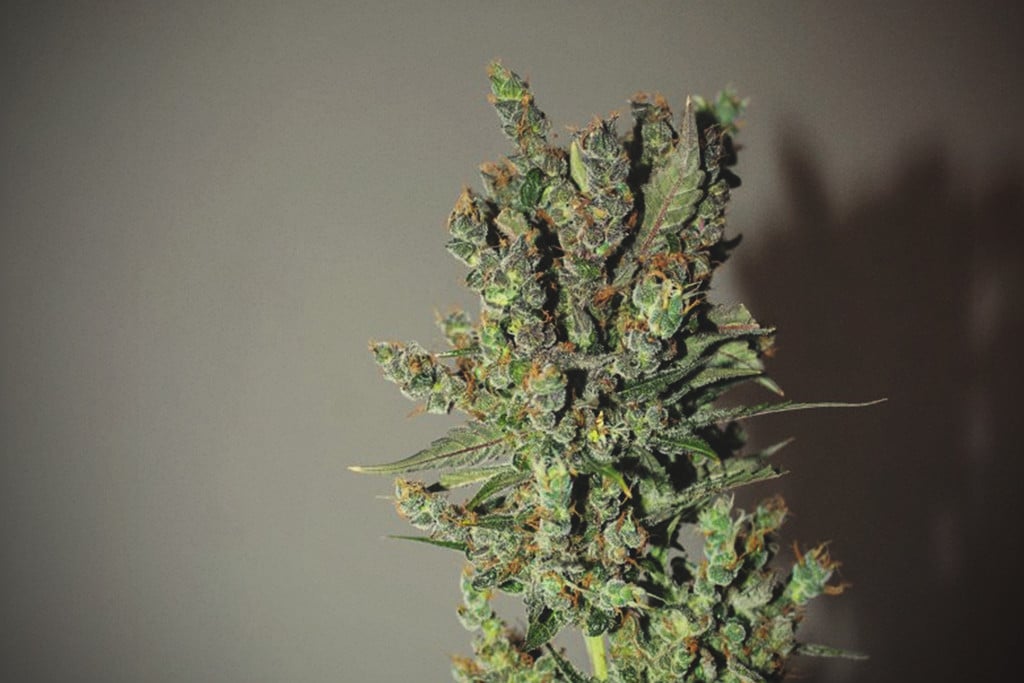
How To Spot And Handle Cannabis Foxtails
Contents:
Sometimes things don't always go to plan when growing cannabis. Whether you're growing inside a tent or outside in your garden, many issues can and do crop up.
Foxtailing is one such problem—this complication often proves frustrating and annoying. After raising your plants from seedlings into large and mature specimens, watching them suffer really does suck.
Luckily, foxtailing rarely causes plant fatalities. It primarily just serves as a sign that your flowering plants are undergoing high levels of stress. If you catch it early enough and pinpoint the cause, chances are you'll be able to fix it.
What Is Foxtailing Weed?
Foxtailing describes a condition where cannabis flowers take on a strange and irregular shape. As the name suggests, this frilly and elongated appearance looks remarkably like the tail of a fox.
Under normal circumstances, cannabis flowers appear dense, rounded, and tight. Some grow tall and narrow depending on their genetics but still feature a compacted and thick feel.
In contrast, foxtailing weed flowers look extremely slender and tall. They feature sets of long and gangly sugar leaves that give them a bushy look—much like the fur upon a fox's tail.
Watching your flowering buds start to put out foxtailing flowers often brings disappointment. After all, these buds are less dense, and therefore likely offer less of a yield.
So, what can you do to prevent foxtailing weed? And can you reverse it when it sets in?

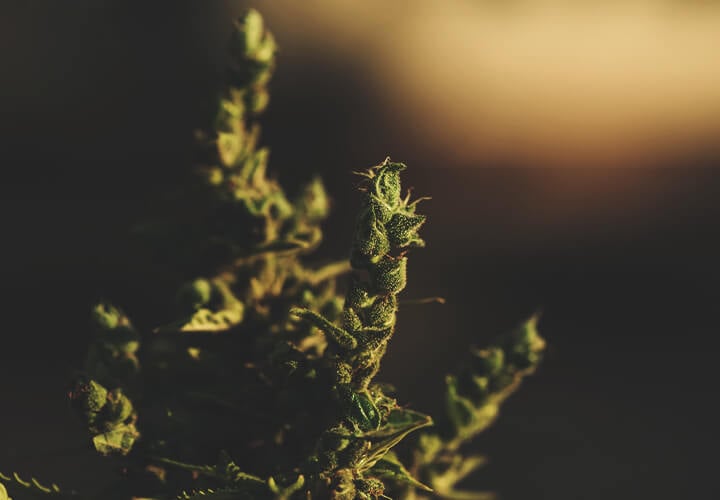
Reason For Foxtailing Cannabis
To prevent your buds from foxtailing, you need to know exactly what triggers this odd process. The main factor responsible for foxtailing revolves around stress, both above and below the soil level.
Strange things happen when cannabis plants have to deal with too much stress. They can even start expressing the wrong genitals at the calyces! Although stress causes plants to incidentally foxtail, some strains are grown to intentionally produce these structures. Some cultivators enjoy this trait and purposely buy seeds that increase the odds of experiencing them.
-
Light stress
Without light, cannabis plants wouldn't even grow. They depend on light more than just about everything else. It enables them to create the energy they need to survive. But light can act as a double-edged sword. If your lights are too intense, too close to your buds, or produce too much heat, they can cause foxtailing to arise.
Your plants will start to develop symptoms at the hands of this environmental source of stress. You'll notice the upper leaves and buds start to bleach white from the lights.
Yellowing leaves can also serve as an indication of light stress. Unlike yellow leaves caused by nitrogen deficiency, these leaves will remain relatively strong and rarely wilt in the same way. These changes of colour display the early signs of light stress. Eventually, if the mix of environment and genetics make it possible, your buds may begin to foxtail.

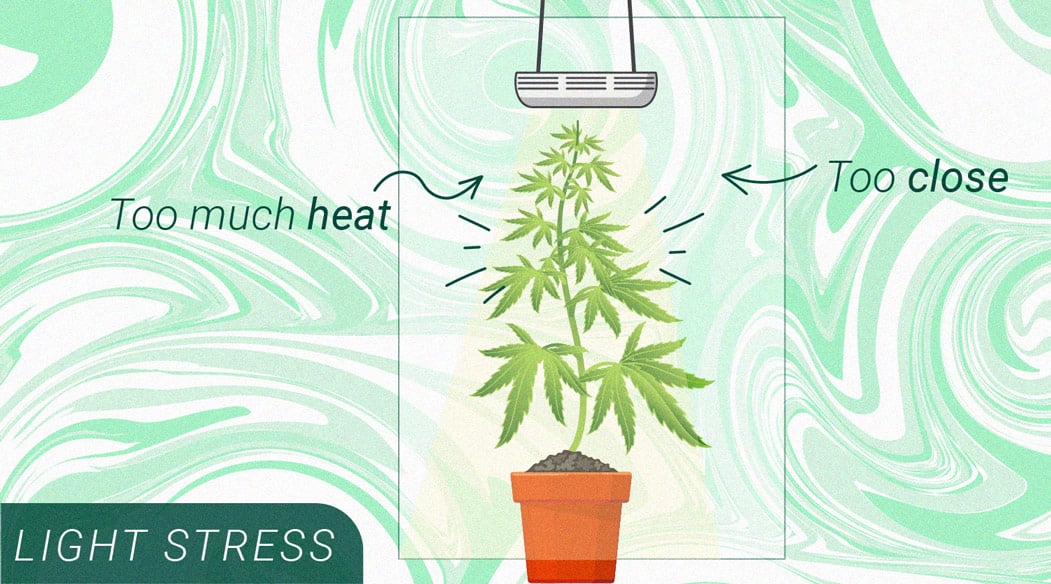
-
Excessive heat
Excessive heat can also do a number on cannabis plants. Weed prefers a consistently warm temperature throughout the growing cycle. If temperatures rise too high or dip too low, growth may become stunted and yields will suffer. Cannabis plants prefer a slightly different temperature range throughout different stages of the growing cycle. Check out this brief guide:
- Seedling phase: 20-25°C
- Vegetative phase: 22-28°C
- Flowering phase: 20-26°C
If the temperature of your growing room, greenhouse, or garden exceeds these temperatures for an extended period of time, you might just see foxtailing flowers start to appear.
Lights aren't the only heat source in a growing room. Heatwaves can cause large spikes indoors and increase the temperature of the air, which can also have a detrimental and stressful effect on your plants. Greenhouses are also designed to trap heat. You'll find out how to disperse all of this hot air in the solutions section below.
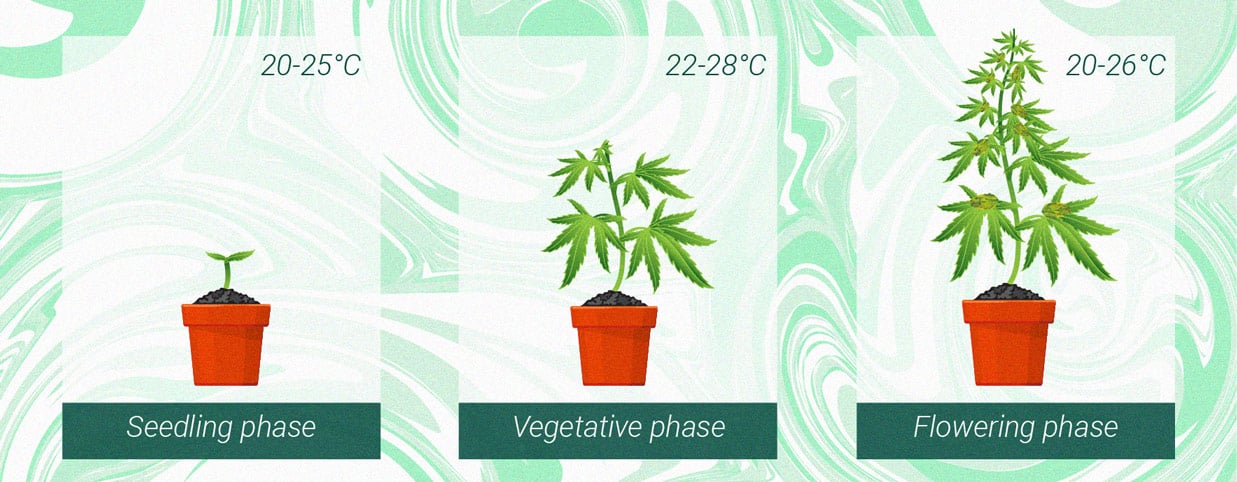
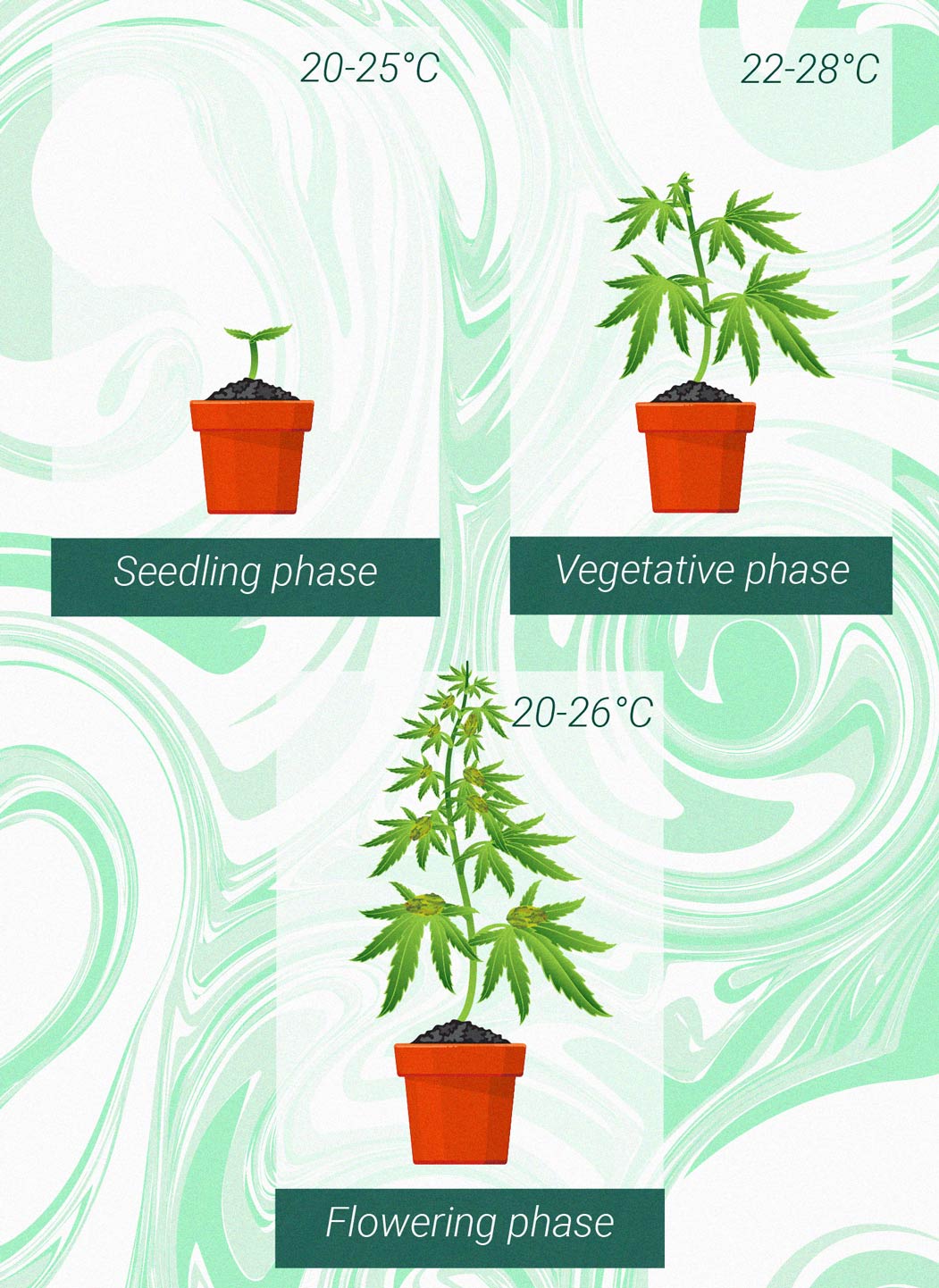
-
Root zone health
We can only observe the health of our plants above the soil. However, so much goes on just beneath the surface. Factors such as pH and microbial warfare can take a toll on the root system.
If either of these factors starts to get out of hand, cannabis plants will start to feel the stress rising. If things reach a certain point, you might see foxtailing flowers, even if you've got everything above the soil under control. Check out the primary sources of root zone stress below.
- pH
When it comes to pH, cannabis plants love slightly acidic growing mediums. Ideally, keep your soil at a pH of between 6.0-7.0. Cannabis roots are able to uptake nutrients most successfully within this range.
Slight fluctuations are acceptable, but if levels sway too much in the wrong direction for too long, roots will fail to uptake nutrients and "lockout" will occur. This can cause plants to stress and possibly begin to foxtail.
- Bad microbes
To our naked eyes, the soil looks like an inert brown substance. But when we place a speck of soil under a microscope, it quickly becomes apparent that millions of microbes call this growing medium home.
Some of these lifeforms, including species of bacteria and fungi, form a symbiotic relationship with cannabis roots and help them to uptake nutrients. But others are hostile and can wreak havoc.
Some creatures, such as parasitic nematodes, love to chew through roots and devour their contents. Their unrestrained grazing can cause leaves to become yellow and rot. This level of stress may also cause weed flowers to foxtail. You'll discover key ways to keep your soil microbially healthy later on in this article.
-
Genetics
Cannabis breeders have created thousands of different cultivars. Through the process of selective breeding, they've created plants with hundreds of different tastes, shapes, sizes, smells, and effects.
Some breeders have intentionally created strains that are prone to foxtailing. Why? Because they're meeting a demand that exists. Some growers love this rare trait and like to grow flowers that look peculiar and cool as something different.
If you accidentally pick up a strain designed to foxtail, you can't really do much about the inevitable expression of this trait. The best thing to do? Harvest the flowers, blaze them up, and select a different strain next time.
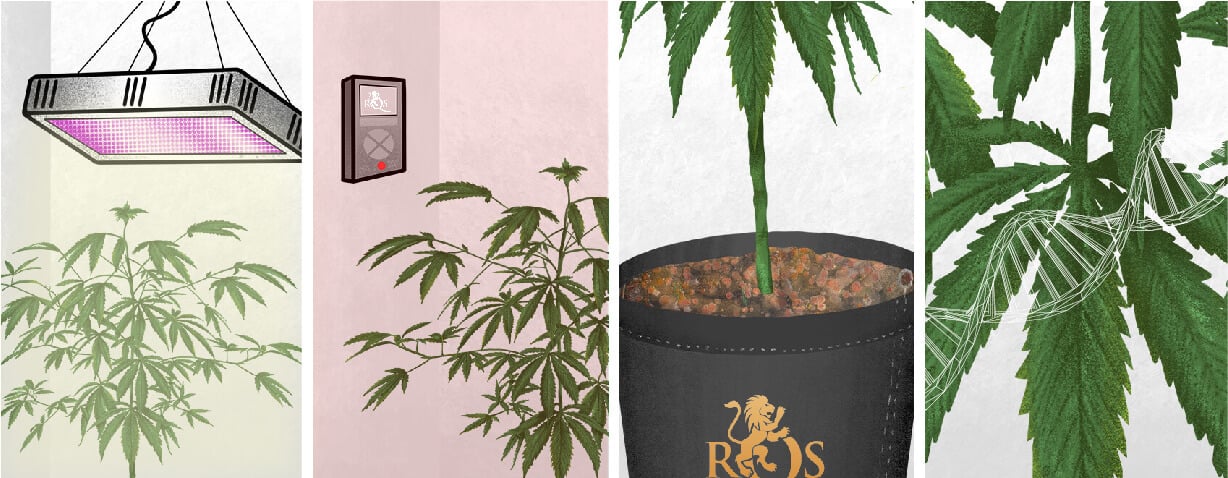
Is Foxtailing Bad?
Yes and no. We're aware this answer doesn't particularly satisfy, but it really depends on the perspective of the grower. If you intended to grow foxtailing weed flowers for its aesthetic from a strain made to provide them, foxtailing is a good thing. If you're aiming to grow round, dense, and regular cannabis buds, it's a bad thing.
But do not worry, they still contain plenty of cannabinoids and terpenes. Although they might possess less weight and phytochemicals than regular flowers, you can still make the most of your situation. Then, apply the lessons below going forward to achieve a regular harvest in the future.
How To Fix Foxtailing Buds
So, your buds are foxtailing? Well, you might be able to fix it. It really depends on how far along in the flowering phase you are.
If you're early on in the process, with many smaller flowers yet to bloom, you can reduce stress levels and increase the odds of them forming properly.
| Adjust lighting regularly | Keep your lights moving! After stringing up lights in your growing space, don't just leave them hanging. You need to elevate your lights as your canopy continues to grow. Try to maintain a space of around 25cm between your light source and the top of your plants. This distance can vary depending on the heat your light gives off. If you begin to notice any signs of bleaching, move your light higher up until the symptoms cease. |
| Increase airflow | Grow tents, polytunnels, and greenhouses can become hot extremely quickly during sharp rises in temperature during the summer. You need to remain prepared to deal with these changes. Firstly, place a hygrometer in your growing space. This helpful digital device will help you track and observe the temperature in your cultivation environment. When you see the heat rise above the recommended levels mentioned above, get ready to slam on some fans to help to dissipate the hot air. Fans work extremely well in growing tents and greenhouses. It also helps to purchase a greenhouse with a door or vents to keep your plants from foxtailing during intense weather. If you're growing outdoors, you can protect your plants from extreme heat using a shade cloth. |
| Monitor pH | You should routinely monitor the pH of your soil to prevent nutrient lockout from occurring. Use a pH tester around once per week to make sure things are on track. You can use pH up and down products accordingly to remain in the sweet spot of 6.0-7.0. |
| Microbial balance | If you spot the symptoms of a nematode invasion, you can recruit good microbes to help fight these minute pests off. We recommend adding mycorrhizal fungi and rhizobacteria to your potting mixes at the start of your growing cycle. If you see the symptoms of a nematode crusade occurring, you can add these living supplements to water and supply them as a soil drench. |
| Adjust lighting regularly |
| Keep your lights moving! After stringing up lights in your growing space, don't just leave them hanging. You need to elevate your lights as your canopy continues to grow. Try to maintain a space of around 25cm between your light source and the top of your plants. This distance can vary depending on the heat your light gives off. If you begin to notice any signs of bleaching, move your light higher up until the symptoms cease. |
| Increase airflow |
| Grow tents, polytunnels, and greenhouses can become hot extremely quickly during sharp rises in temperature during the summer. You need to remain prepared to deal with these changes. Firstly, place a hygrometer in your growing space. This helpful digital device will help you track and observe the temperature in your cultivation environment. When you see the heat rise above the recommended levels mentioned above, get ready to slam on some fans to help to dissipate the hot air. Fans work extremely well in growing tents and greenhouses. It also helps to purchase a greenhouse with a door or vents to keep your plants from foxtailing during intense weather. If you're growing outdoors, you can protect your plants from extreme heat using a shade cloth. |
| Monitor pH |
| You should routinely monitor the pH of your soil to prevent nutrient lockout from occurring. Use a pH tester around once per week to make sure things are on track. You can use pH up and down products accordingly to remain in the sweet spot of 6.0-7.0. |
| Microbial balance |
| If you spot the symptoms of a nematode invasion, you can recruit good microbes to help fight these minute pests off. We recommend adding mycorrhizal fungi and rhizobacteria to your potting mixes at the start of your growing cycle. If you see the symptoms of a nematode crusade occurring, you can add these living supplements to water and supply them as a soil drench. |
When To Harvest Foxtailing Buds
If your weed flowers foxtail, you can still use them! If you fail to reverse the process or catch it much too late, you can still enjoy their flavours and effects.
First, reduce the source of stress as much as possible to help them keep some quality. Reposition your light, tend to the pH and microbes, and hit that heat sweet spot.
Remember to flush your cannabis plants around two weeks before harvest, and remove them from your trichomes turn from clear to cloudy.
 Grow Guide Topic Finder
Grow Guide Topic Finder
- Growing cannabis step by step
- Cannabis growing basics
- Choosing your seeds
- How to germinate seeds
- The cannabis vegetative stage
- The cannabis flowering stage
- Harvesting cannabis
- Trimming, drying, and curing
- Choosing pots and soil
-
Growing indoors
- A Complete Overview Of Growing Cannabis Indoors
- Cannabis Cultivation Tips: How To Set Up Indoor Grow Lights
- How Many Cannabis Plants Can You Grow Per Square Metre?
- Indoor Cannabis Growing: Relative Humidity and Temperatures
- Hydroponics Cannabis Growing Guide (with diagrams)
- Cannabis Micro Growing: Growing Great Weed in Tiny Spaces
- Growing outdoors
- How to grow autoflowering cannabis
- Cannabis nutrients and pH
- Cannabis troubleshooting: Nutrients
-
Cannabis troubleshooting: Growing
- Cannabis Seed Germination — Troubleshooting Guide
- How to Deal With Pythium (Root Rot) in Cannabis Plants
- Slow Cannabis Plant Growth And What You Can Do About It
- How to Deal With Leggy Cannabis Seedlings
- Watering Your Cannabis: How to Fix Overwatering and Underwatering
- Understanding Male, Female, And Hermaphrodite Cannabis
- Identifying and Treating Common Cannabis Ailments
- How To Revive a Sick Cannabis Plant
- How to Avoid Mouldy Weed During Drying and Curing
- How to Prevent and Treat Dry and Crispy Cannabis Leaves
- What Cannabis Leaves Can Tell You
- Causes and Solutions for Yellow Cannabis Leaves
-
Cannabis Strains Grow Report
- HulkBerry Automatic Grow Report
- Blue Cheese Auto Grow Report
- Purple Punch Automatic Strain Grow Report
- Triple G Automatic Grow Report
- Do-Si-Dos Automatic Grow Report
- Green Gelato Automatic Grow Report
- Haze Berry Automatic Grow Report
- Purple Queen Automatic Grow Report
- Cookies Gelato Automatic Grow Report
- Sherbet Queen Automatic Grow Report
- Sweet Skunk Automatic Grow Report
- Medusa F1 Grow Report
- Cannabis plant training
-
Weed growing tips
- The Cannabis Plant Anatomy
- How to preserve seeds
- How Much Sunlight Do Outdoor Cannabis Plants Need To Grow?
- How to Control and Prevent Stretching in Cannabis Plants
- My Cannabis Plants Are Growing Too Tall: What Should I Do?
- Should You Worry About Purple Or Red Cannabis Stems?
- What To Do When Your Indoor Cannabis Won’t Flower
- How To Protect Your Cannabis Plants From Heat Stress
- How To Tell If Your Female Cannabis Plant Has Been Pollinated
- Growing Medical Marijuana
- Bud Washing: How to Clean Your Weed
- Understanding Cannabis Yield per Plant



























